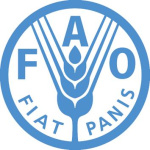- Settore: Agriculture
- Number of terms: 87409
- Number of blossaries: 0
- Company Profile:
Established in October 1945 with the objective of eliminating hunger and improving nutrition and standards of living by increasing agricultural productivity, FAO coordinates the efforts of governments and technical agencies in programs for developing agriculture, forestry, fisheries, and land and ...
A plant growth regulator involved in abscission, dormancy stomatal opening/closure, and inhibition of seed germination. It also affects the regulation of somatic cell embryogenesis in some plant species.
Industry:Biotechnology
A plant or animal certified through specific tests as being free of specified pathogens. Disease-free should be interpreted to mean "free from any known diseases" as "new" diseases may yet be discovered to be present.
Industry:Biotechnology
A plant or animal species in immediate danger of extinction because its population numbers have reached a critical level or its habitats have been drastically reduced.
Industry:Biotechnology
A plant part aseptically excised and prepared for culture in a nutrient medium.
Industry:Biotechnology
A plant regenerated from a tissue culture originating from gametic tissue.
Industry:Biotechnology
A plant that can tolerate a high concentration of salt in the growing medium.
Industry:Biotechnology
A plant that grows upon another plant, but is neither parasitic on it nor rooted in the ground.
Industry:Biotechnology
A plasmid capable of replicating in two different host organisms because it carries two different origins of replication and can therefore be used to 'shuttle' genes from one to the other. For example, the YEp, pJDB219, is a shuttle vector able to replicate in <i>E. coli</i> from its pMB9 origin and in <i>Saccaromyces cerevisiae</i> from its 2 µm-plasmid origin.
Industry:Biotechnology
A plasmid capable of replicating in two different host organisms because it carries two different origins of replication and can therefore be used to 'shuttle' genes from one to the other. For example, the YEp, pJDB219, is a shuttle vector able to replicate in <i>E. coli</i> from its pMB9 origin and in <i>Saccaromyces cerevisiae</i> from its 2 µm-plasmid origin.
Industry:Biotechnology
A plasmid that can replicate in a number of different bacterial species.
Industry:Biotechnology
